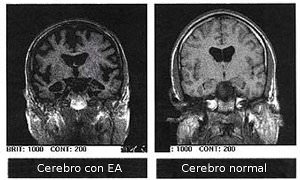Ganging Up on Alzheimer’s
A decision by scientists back in 2003 to share their findings on Alzheimer's research has led to a “wealth of recent scientific papers” and important advances in moving to understand the disease and develop drugs to combat it.
A decision by scientists back in 2003 to share their findings on Alzheimer’s research has led to a “wealth of recent scientific papers” and important advances in moving to understand the disease and develop drugs to combat it.
Historically, medical researchers, drug companies and academia have jealously guarded their work. The Alzheimer’s collaborative project has already opened the door to a similar effort against Parkinson’s disease. –JCL
Your support matters…The New York Times:
The key to the Alzheimer’s project was an agreement as ambitious as its goal: not just to raise money, not just to do research on a vast scale, but also to share all the data, making every single finding public immediately, available to anyone with a computer anywhere in the world.
No one would own the data. No one could submit patent applications, though private companies would ultimately profit from any drugs or imaging tests developed as a result of the effort.
“It was unbelievable,” said Dr. John Q. Trojanowski, an Alzheimer’s researcher at the University of Pennsylvania. “It’s not science the way most of us have practiced it in our careers. But we all realized that we would never get biomarkers unless all of us parked our egos and intellectual-property noses outside the door and agreed that all of our data would be public immediately.”
Independent journalism is under threat and overshadowed by heavily funded mainstream media.
You can help level the playing field. Become a member.
Your tax-deductible contribution keeps us digging beneath the headlines to give you thought-provoking, investigative reporting and analysis that unearths what's really happening- without compromise.
Give today to support our courageous, independent journalists.






You need to be a supporter to comment.
There are currently no responses to this article.
Be the first to respond.